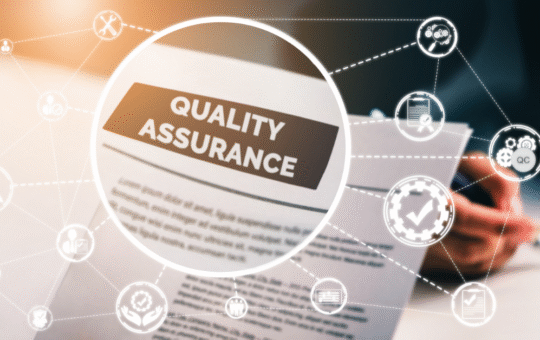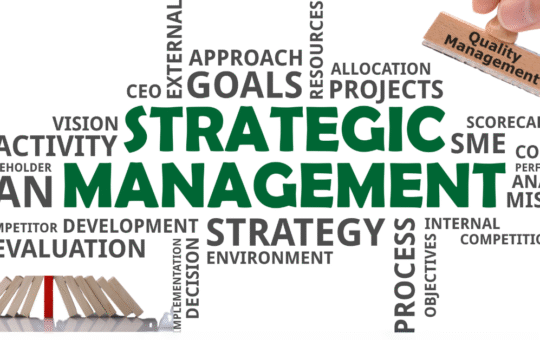
Level 4 Diploma in Total Quality Management (TQM) Strategies
- Master the core principles and methodologies of Total Quality Management.
- Learn how to implement TQM strategies effectively across departments.
- Develop the skills to drive continuous improvement and sustain high standards.
- Understand how TQM can lead to increased customer satisfaction and competitive advantage.
- Understand the history, principles, and philosophy behind Total Quality Management.
- Learn to develop and implement TQM strategies for organizational improvement.
- Gain insights into the role of leadership in driving quality culture.
- Apply key TQM tools and techniques such as PDCA (Plan-Do-Check-Act) and Six Sigma.
- Understand how to measure and sustain continuous improvement in quality.
- Introduction to Total Quality Management
- Key principles and philosophy of TQM.
- The importance of customer-focused management.
- Leadership and Strategic Planning in TQM
- Role of leadership in TQM implementation.
- Aligning organizational strategies with TQM principles.
- Quality Tools and Techniques
- Tools such as Pareto Analysis, Fishbone Diagram, and Affinity Diagrams.
- Implementing the PDCA cycle for continuous improvement.
- Customer Satisfaction and Feedback Systems
- The role of customer feedback in TQM.
- Techniques for gathering, analyzing, and responding to customer feedback.
- Performance Measurement and Continuous Improvement
- Key performance indicators (KPIs) and metrics for TQM.
- Sustaining improvements and measuring success.
- Case Studies and Industry Applications
- Real-world examples from various industries (manufacturing, service, healthcare).
- Advance to higher-level certifications in Quality Management or Six Sigma.
- Take on roles such as TQM Manager, Quality Improvement Leader, or Operations Director.
- Implement and manage TQM strategies in industries such as manufacturing, healthcare, and service sectors.
- Comprehensive Content: In-depth coverage of TQM principles, strategies, and real-world applications.
- Industry Experts: Learn from instructors with extensive experience in TQM and quality management.
- Practical Approach: A blend of theoretical knowledge and practical tools for immediate application.
- Internationally Recognized Certification: Open doors to career opportunities globally with an accredited diploma.
Study Units
- Introduction to Total Quality Management
- Key principles and philosophy of TQM.
- The importance of customer-focused management.
- Leadership and Strategic Planning in TQM
- Role of leadership in TQM implementation.
- Aligning organizational strategies with TQM principles.
- Quality Tools and Techniques
- Tools such as Pareto Analysis, Fishbone Diagram, and Affinity Diagrams.
- Implementing the PDCA cycle for continuous improvement.
- Customer Satisfaction and Feedback Systems
- The role of customer feedback in TQM.
- Techniques for gathering, analyzing, and responding to customer feedback.
- Performance Measurement and Continuous Improvement
- Key performance indicators (KPIs) and metrics for TQM.
- Sustaining improvements and measuring success.
- Case Studies and Industry Applications
- Real-world examples from various industries (manufacturing, service, healthcare).
By completing this course, learners will:
- Understand the history, principles, and philosophy behind Total Quality Management.
- Learn to develop and implement TQM strategies for organizational improvement.
- Gain insights into the role of leadership in driving quality culture.
- Apply key TQM tools and techniques such as PDCA (Plan-Do-Check-Act) and Six Sigma.
- Understand how to measure and sustain continuous improvement in quality.
The Level 4 Diploma in Total Quality Management (TQM) Strategies is designed for professionals aiming to lead quality improvement initiatives and drive continuous organizational growth. This course is ideal for:
Quality Managers and Directors
Professionals responsible for overseeing the implementation of quality management systems (QMS) who wish to enhance their strategic approach to Total Quality Management and customer-focused operations.
TQM Specialists
Individuals who specialize in Total Quality Management and want to deepen their expertise in advanced TQM strategies and tools to improve organizational performance.
Operations Managers
Managers who oversee the day-to-day running of business operations and want to implement effective TQM strategies to enhance efficiency, customer satisfaction, and competitive advantage.
Senior Leaders and Executives
Leadership teams in any organization who are responsible for aligning organizational strategies with TQM principles and driving a culture of continuous improvement across departments.
Quality Improvement Leaders
Professionals focused on leading quality improvement initiatives and fostering a culture of excellence within their organizations.
Consultants in Quality Management
Consultants advising organizations on quality improvement and customer satisfaction strategies, aiming to deepen their knowledge of TQM and its application in various industries.
Professionals in Manufacturing, Healthcare, and Service Sectors
Those in leadership or management positions within industries such as manufacturing, healthcare, and service sectors, who seek to implement and manage TQM strategies to boost operational performance.
Our assessment process is designed to ensure every learner achieves the required level of knowledge, skills, and understanding outlined in each course unit.
Purpose of Assessment
Assessment helps measure how well a learner has met the learning outcomes. It ensures consistency, quality, and fairness across all learners.
What Learners Need to Do
Learners must provide clear evidence that shows they have met all the learning outcomes and assessment criteria for each unit. This evidence can take different forms depending on the course and type of learning.
Types of Acceptable Evidence
Assignments, reports, or projects
Worksheets or written tasks
Portfolios of practical work
Answers to oral or written questions
Test or exam papers
Understanding the Structure
Learning outcomes explain what learners should know, understand, or be able to do.
Assessment criteria set the standard learners must meet to achieve each learning outcome.
Assessment Guidelines
All assessment must be authentic, current, and relevant to the unit.
Evidence must match each assessment criterion clearly.
Plagiarism or copied work is not accepted.
All learners must complete assessments within the given timelines.
Where applicable, assessments may be reviewed or verified by internal or external quality assurers.
Full learning outcomes and assessment criteria for each qualification are available from page 8 of the course handbook.
Top Courses
Related Courses
Let's Get in touch
Deleting Course Review
Course Access
This course is password protected. To access it please enter your password below:



